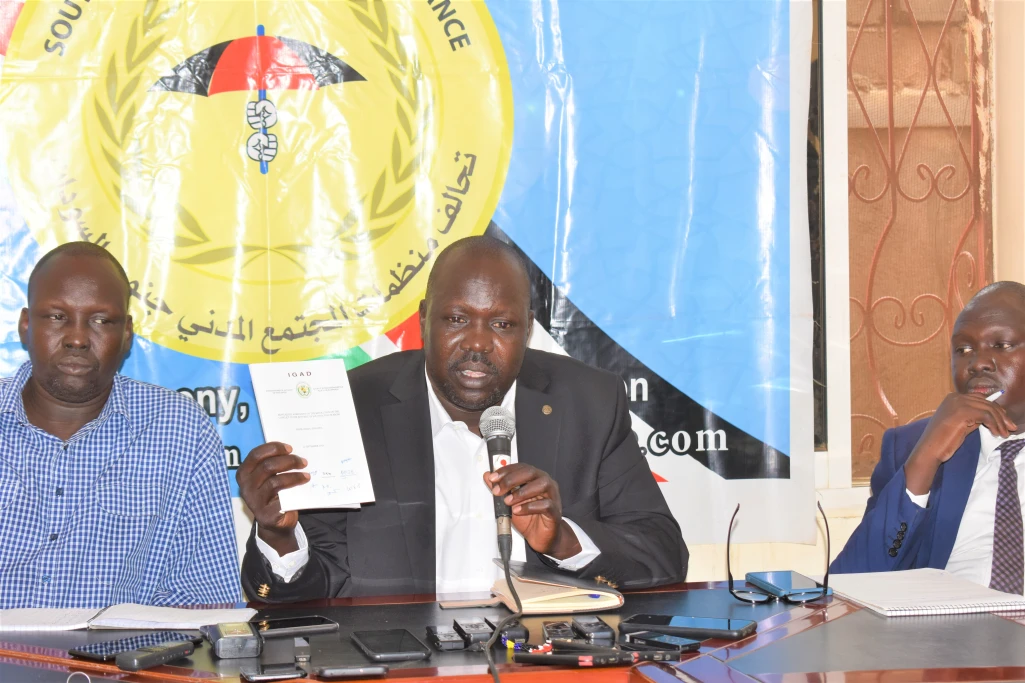
South Sudan Civil Society Alliance said any further extension of the transitional period in South Sudan must clearly stipulate timelines for general elections.
The body wants South Sudanese to be given opportunity to elect their representatives.
Early this month, President Kiir received a roadmap on how the current transitional period should end. The revised timeframe is set to be presented to the presidency although the First Vice President, Dr. Riek Machar has rejected it – saying the document does not reflect the views of all parties to the revitalized peace agreement.
The drafting of the roadmap was spearheaded by the chairperson of the National Transitional Committee, Tut Gatluak, Minister of Cabinet Affairs, Dr. Elia Lomoro and Minister of Information, Michael Makuei Lueth.
The parties to the 2018 revitalized peace deal are said to be studying the document. So far, the South Sudan Opposition Alliance headed by Vice President Abdelbagi Ayii has endorsed the draft document on the possible extension of the transitional period.
“This nation can’t go through transition after transition. So it is very important that we have an election at the end of the transitional period,” Akuoch Ajang Nyanhom, Chairperson of the South Sudan Civil Society Alliance said in a media briefing on July 27, 2022.
In June, SPLM-IO parliamentarians pulled out of the debate on the Political Parties Amendment Bill 2022. Dr Riek Machar’s party claimed the bill was passed despite their reservations. It said the bill sailed through the national legislative assembly despite their concerns over the modalities of financing the political parties and the conditions for a party to be legally registered.
The SPLM-IO said it will likely boycott any election in South Sudan citing lack of political and civic space.
The slow pace of the implementation of the 2018 peace deal has been attributed to a lack of political will and funding by the unity government. Its partial implementation has largely been dependant on external funding from international donors such as the United States, United Kingdom, Norway, Canada, and European Union.
Ajang believes the RTGoNU is not doing enough to make the conduct of elections a reality.
“I think it is in the interest of all the parties to extend the agreement because they will continue to rule the country as MPs, Ministers, Commissioners… some of them know that when they go for elections, they will not come back…So why would you think that they want the elections?” asked Ajang.
According to the revitalized peace deal, South Sudan is supposed to hold its first post-independence elections two months before the end of the current transitional period. There are only 8 months left for the transitional period to end.
In June, the Head of UN Mission who is also the Special Representative of the UN Secretary-General in South Sudan said a tangible electoral roadmap should be made public to create a conducive political environment for parties and South Sudanese to engage freely ahead of the democratic exercise.
“It is a heavy task to conduct elections…It is not going to be possible to conduct elections within 6 months, but we have to see the process so that people are convince that they are working on the elections,” Ajang concluded.